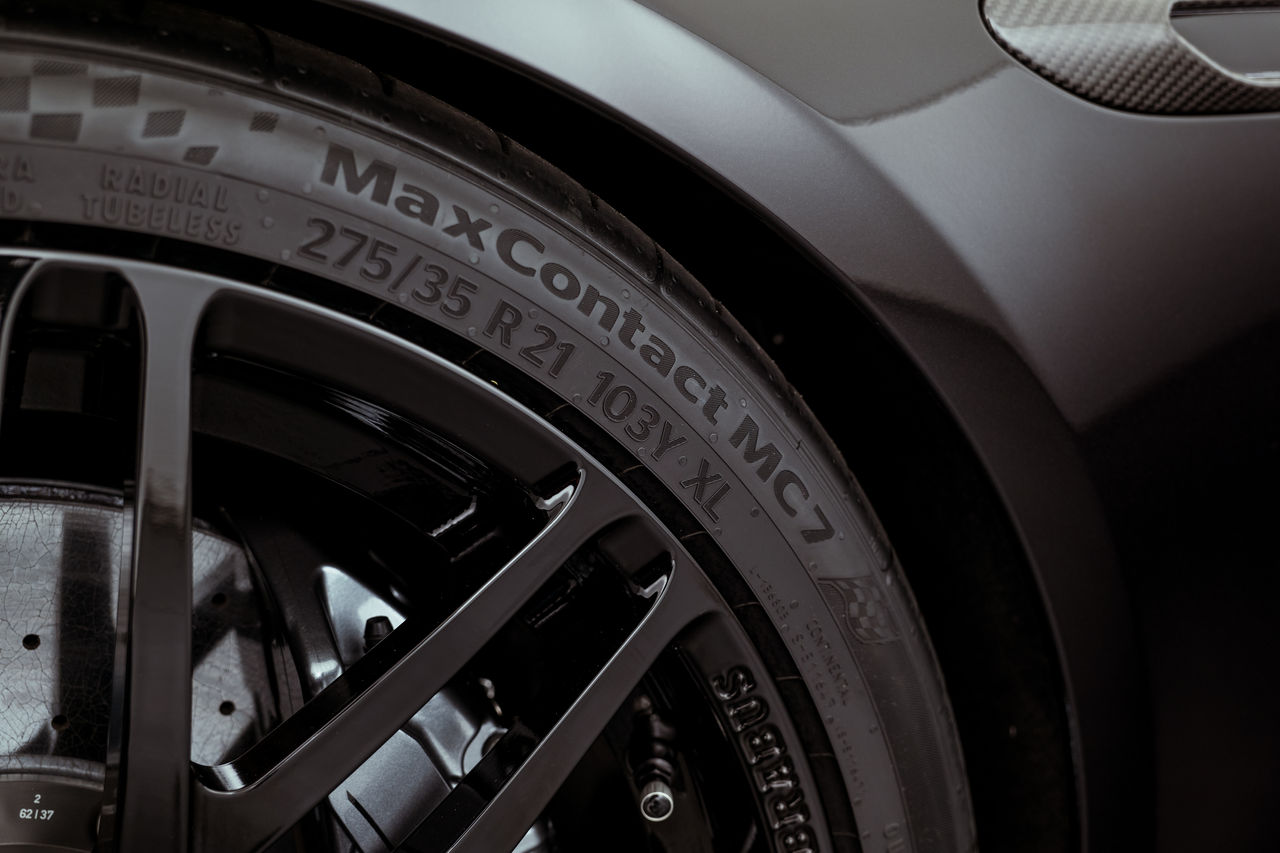
#News
Continental Code of the Road
Decoding Australia's unwritten driving signals
Australians may be great drivers, but when it comes to communication on the road, we’re often speaking different languages.
Continental Tyres recently conducted a national study, revealing that while over half of Aussies (56%) use hand signals, headlight flashes, and polite honks to communicate, the meanings aren’t always clear.
One driver’s “thank you” wave could be another’s “go ahead,” and a honk can mean anything from “heads up” to outright frustration.
Generational differences also play a role – for example, Gen X drivers are more likely to point to a flat tyre, while younger drivers often rely on flashing headlights or don’t signal at all.
To bring clarity to these moments, Continental has created the Code of the Road Dictionary – a guide that lays out what gestures mean, how Aussies interpret them, and establishes a definitive consensus.
Why it Matters
While these gestures might seem small, they play a big role in making the road safer, less confusing, and more connected.
By putting these unwritten rules into one place, the Continental Tyres Code of the Road Dictionary aims to help Aussies drive with more clarity, care, and courtesy.
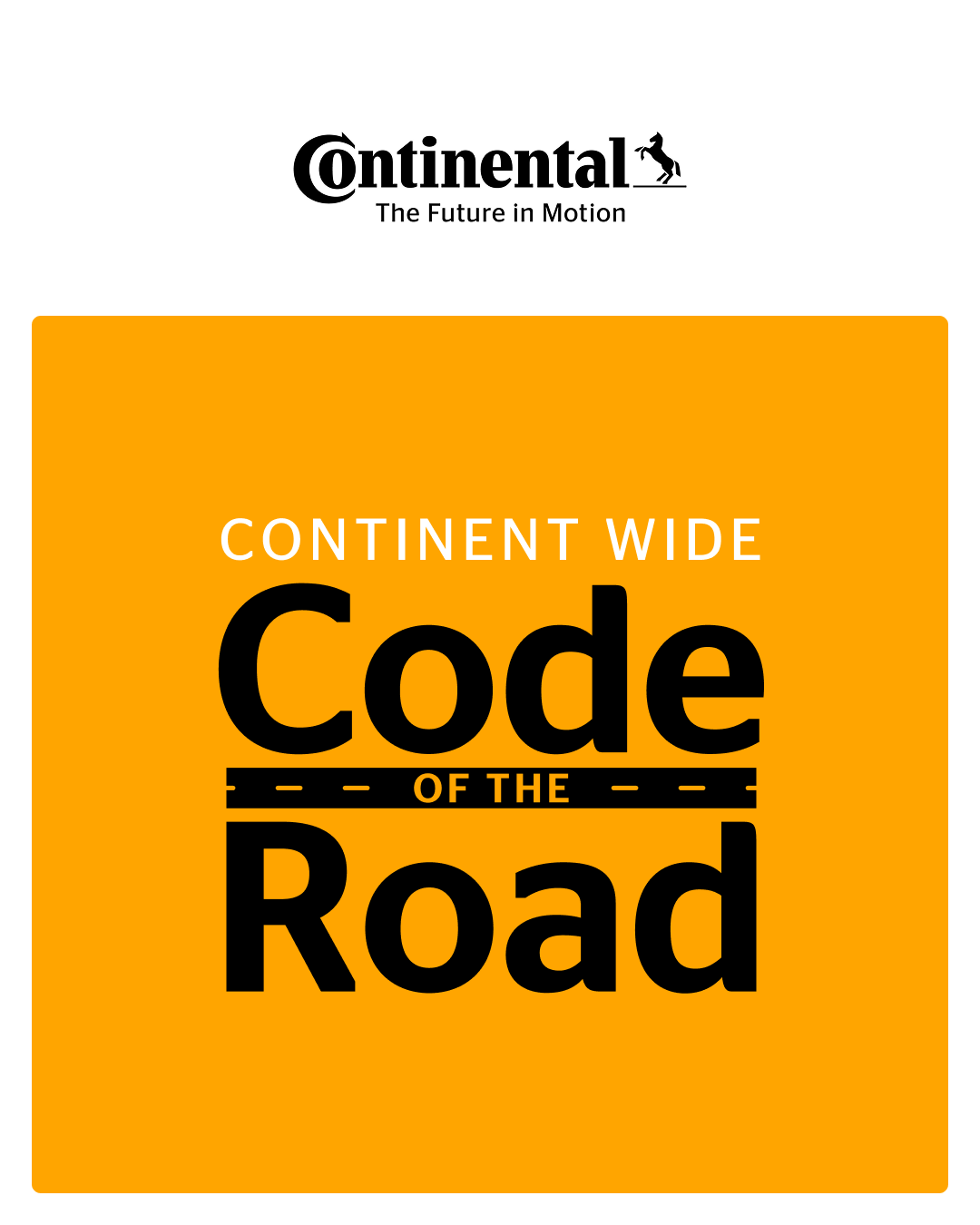
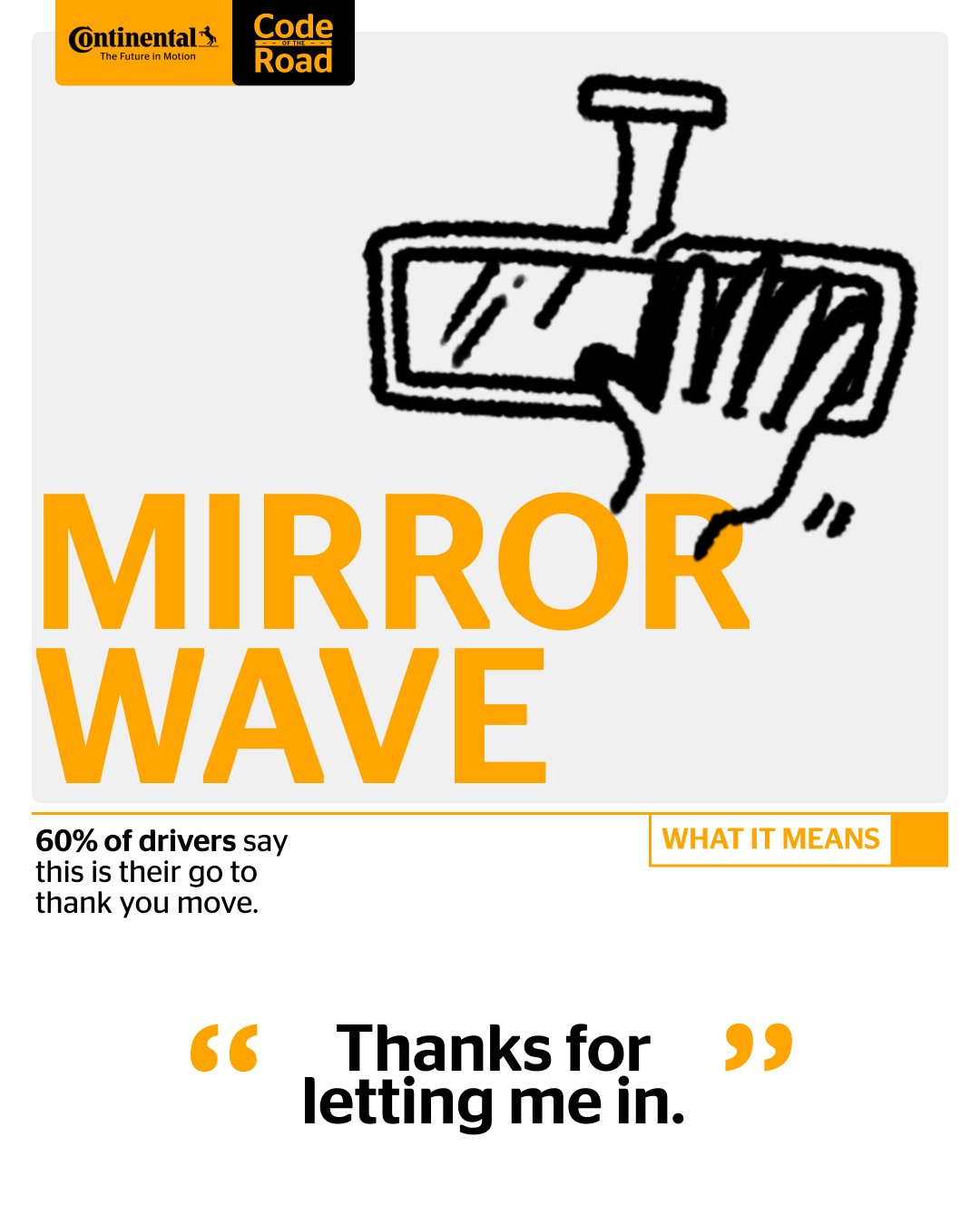
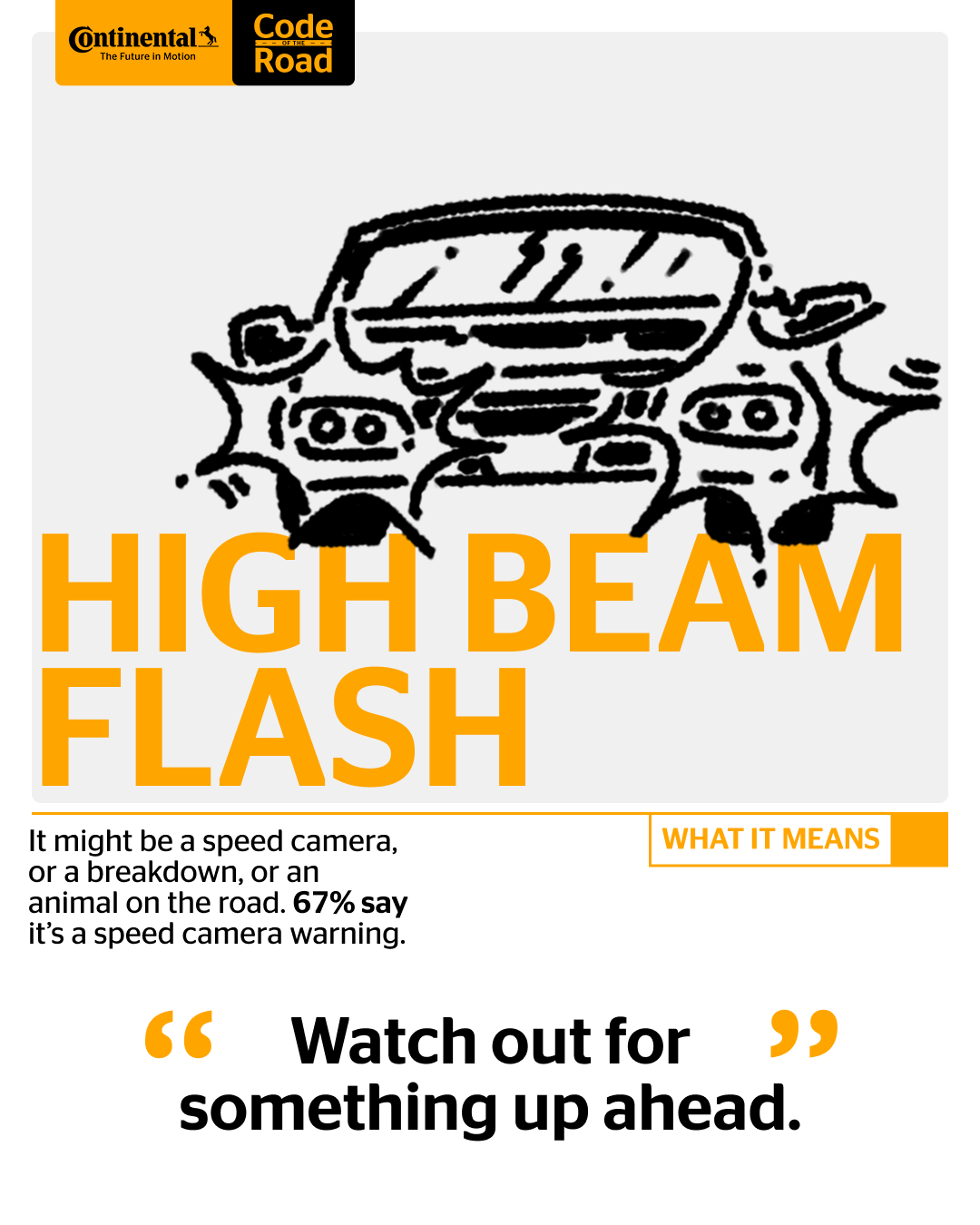
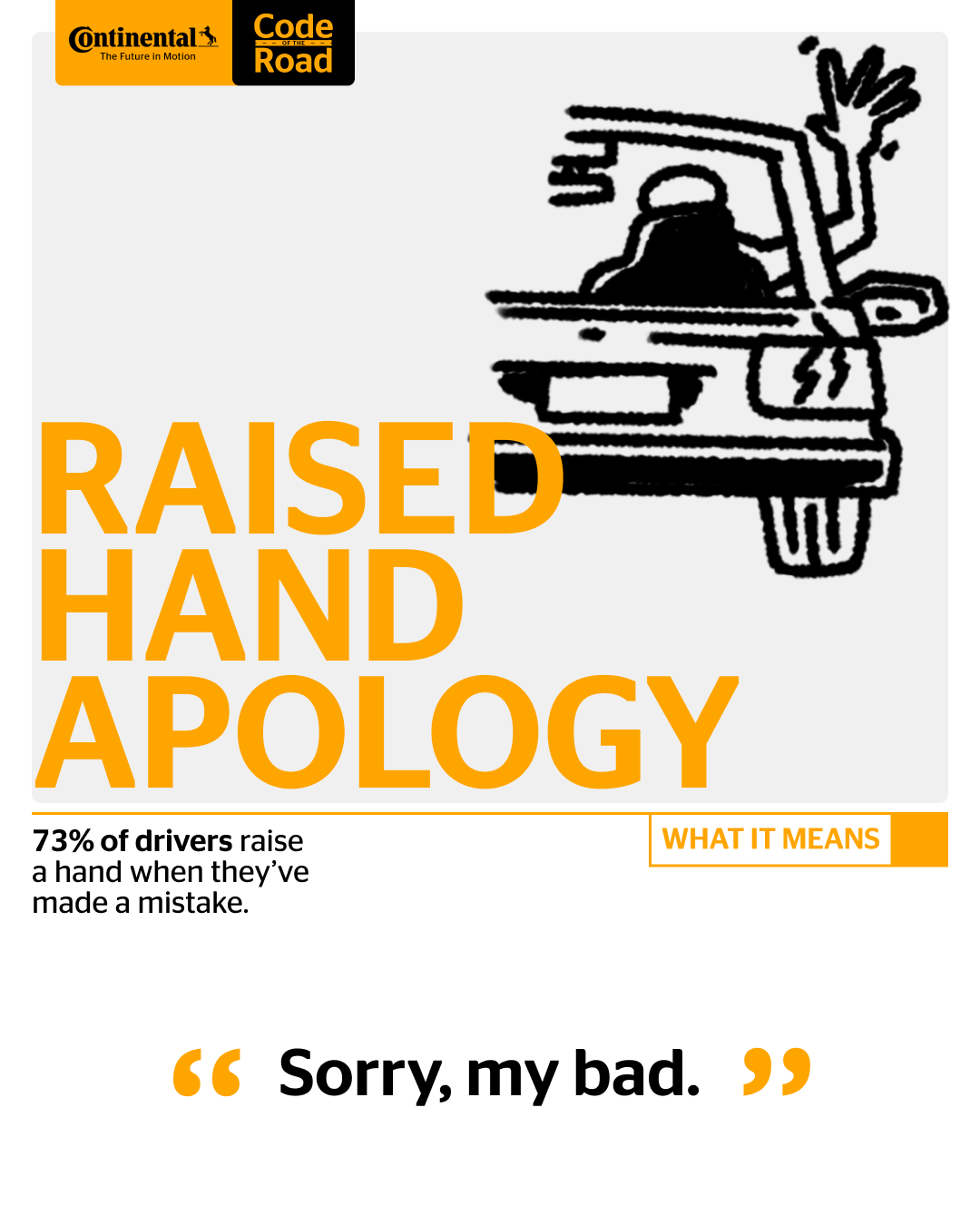
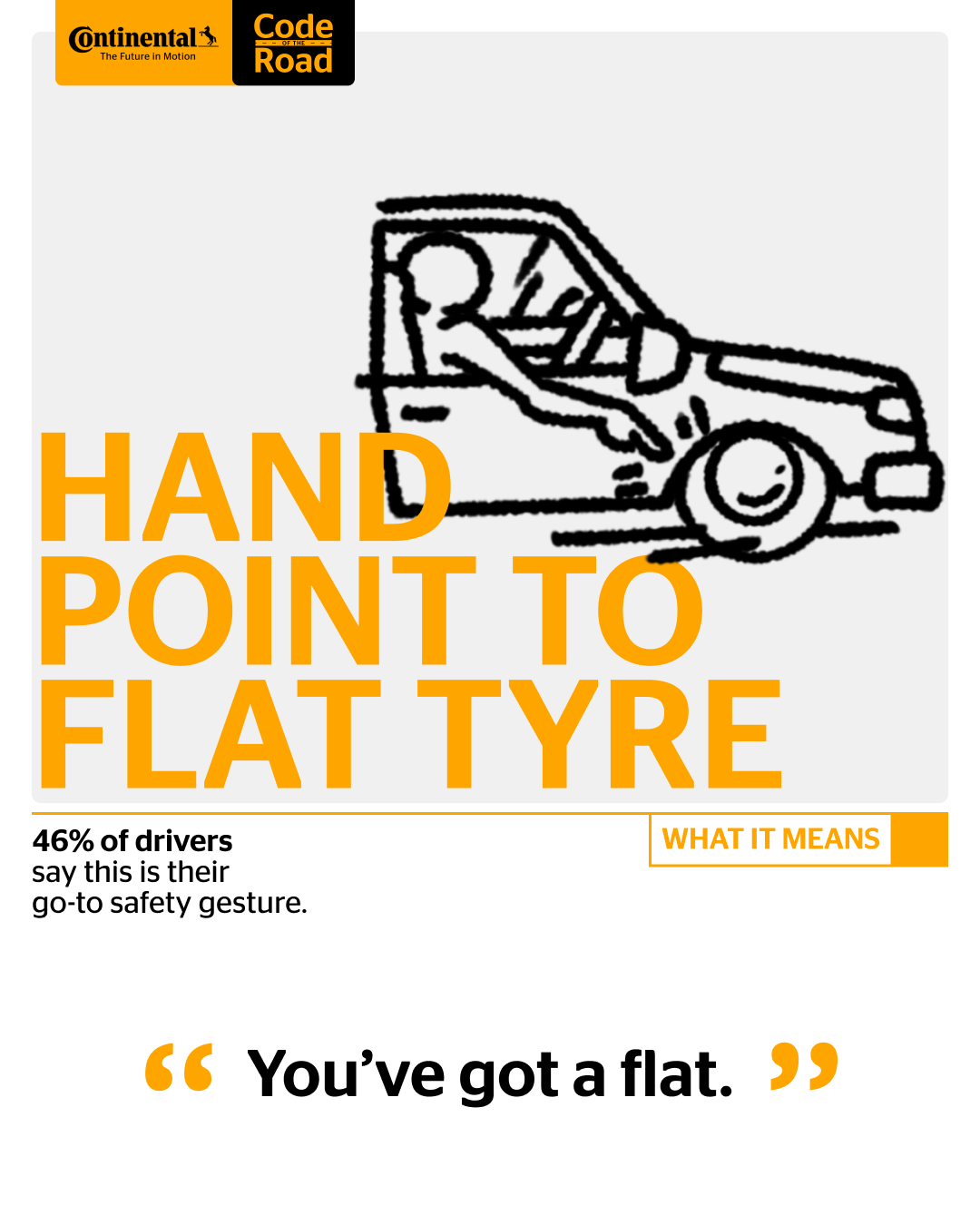
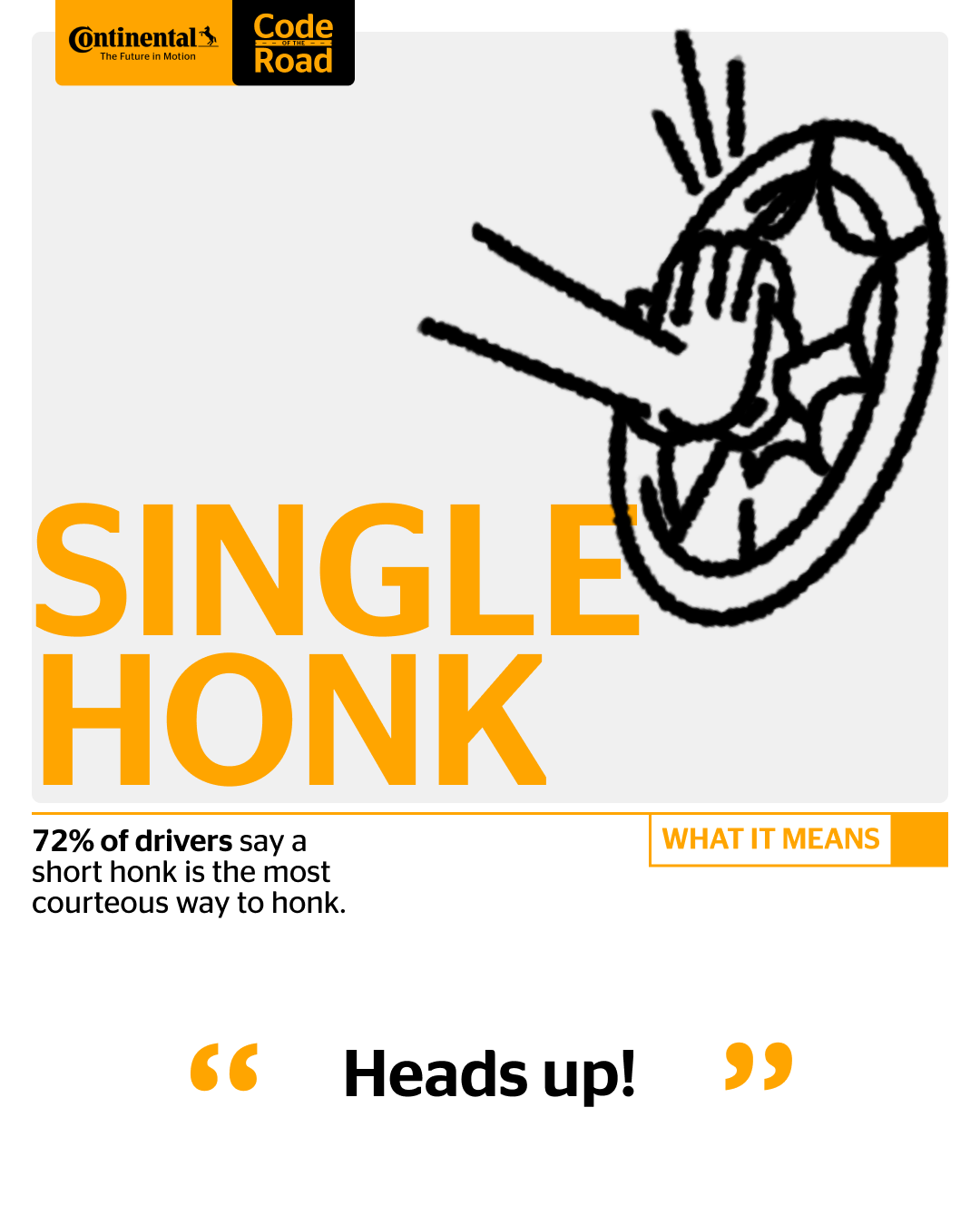
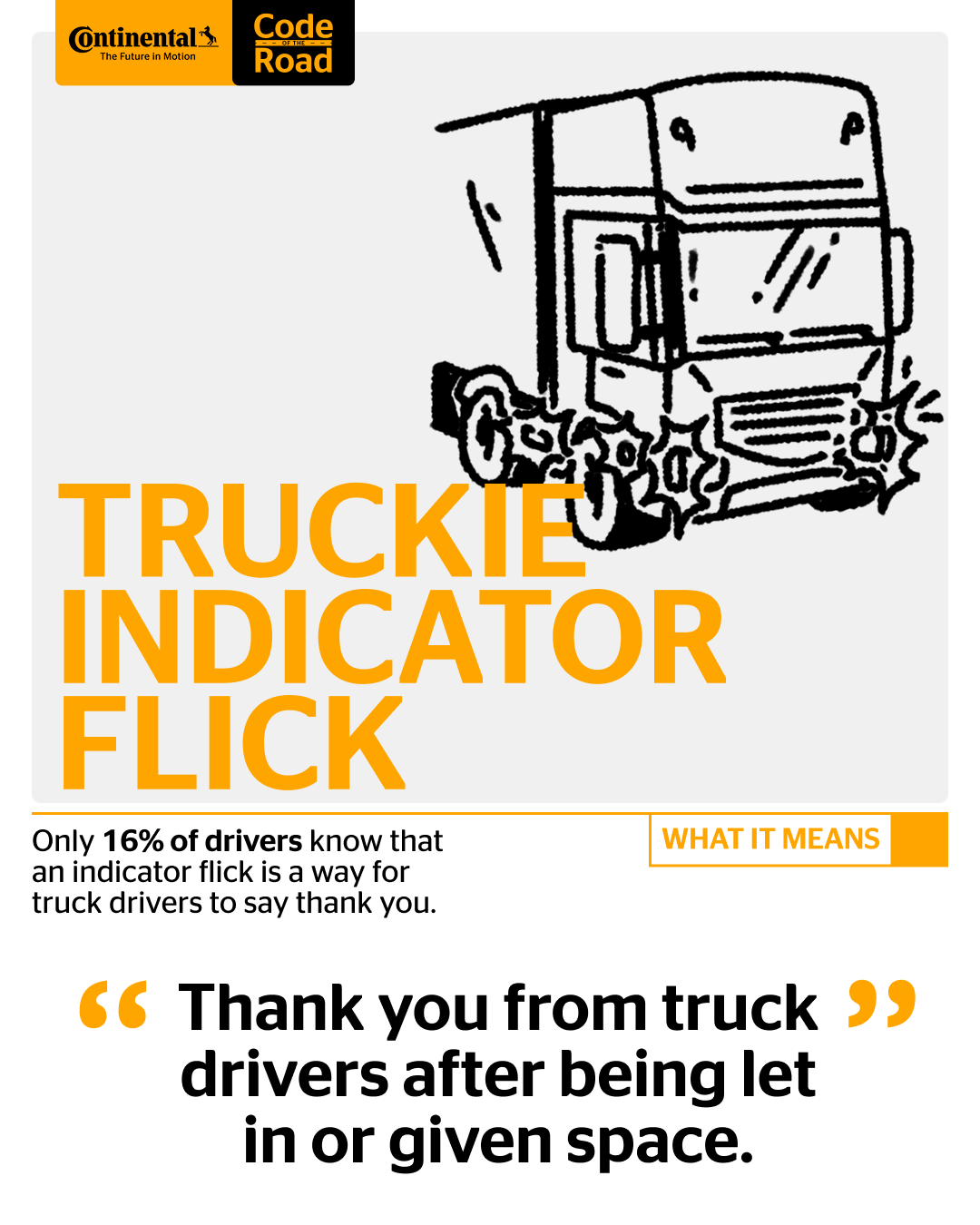
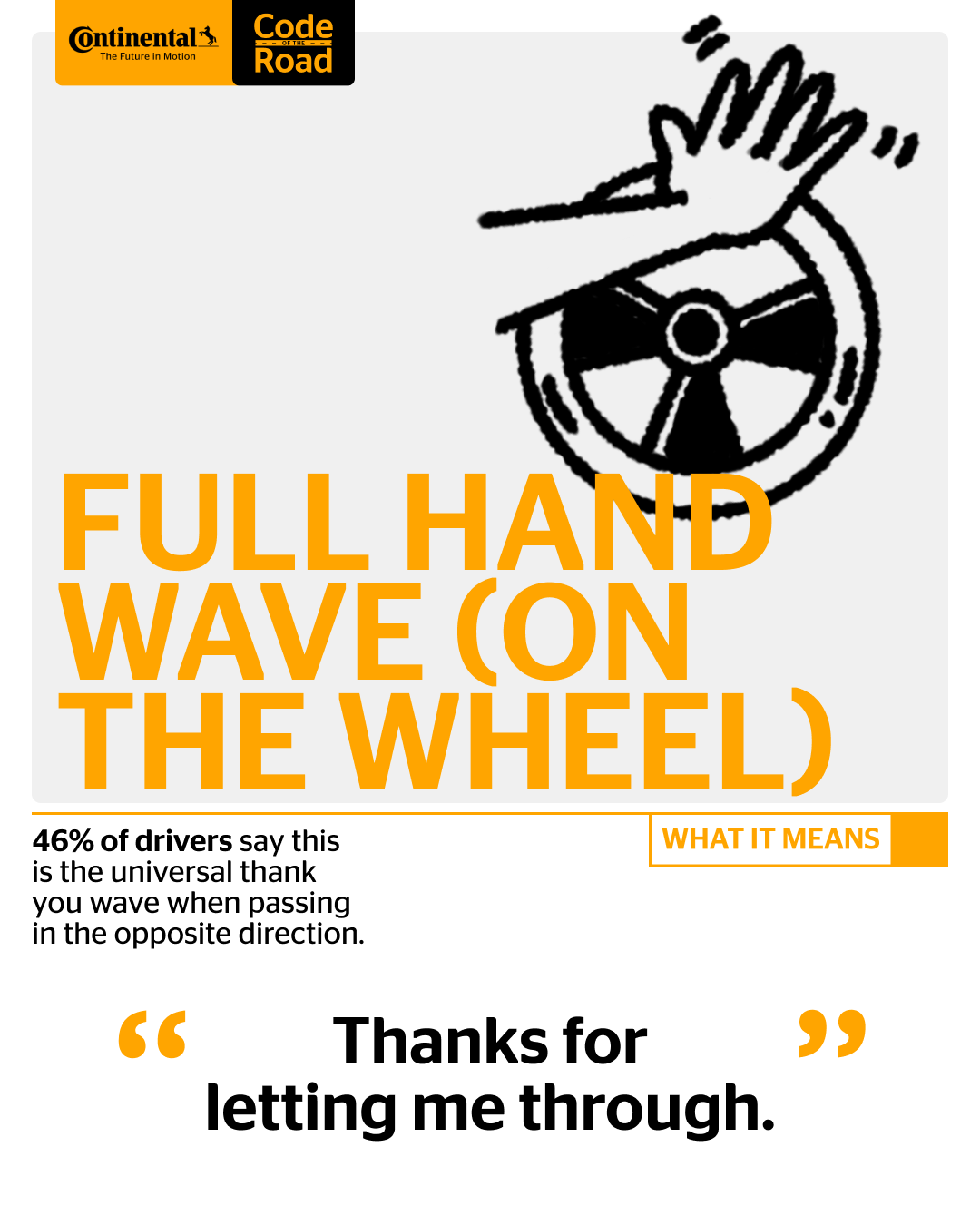
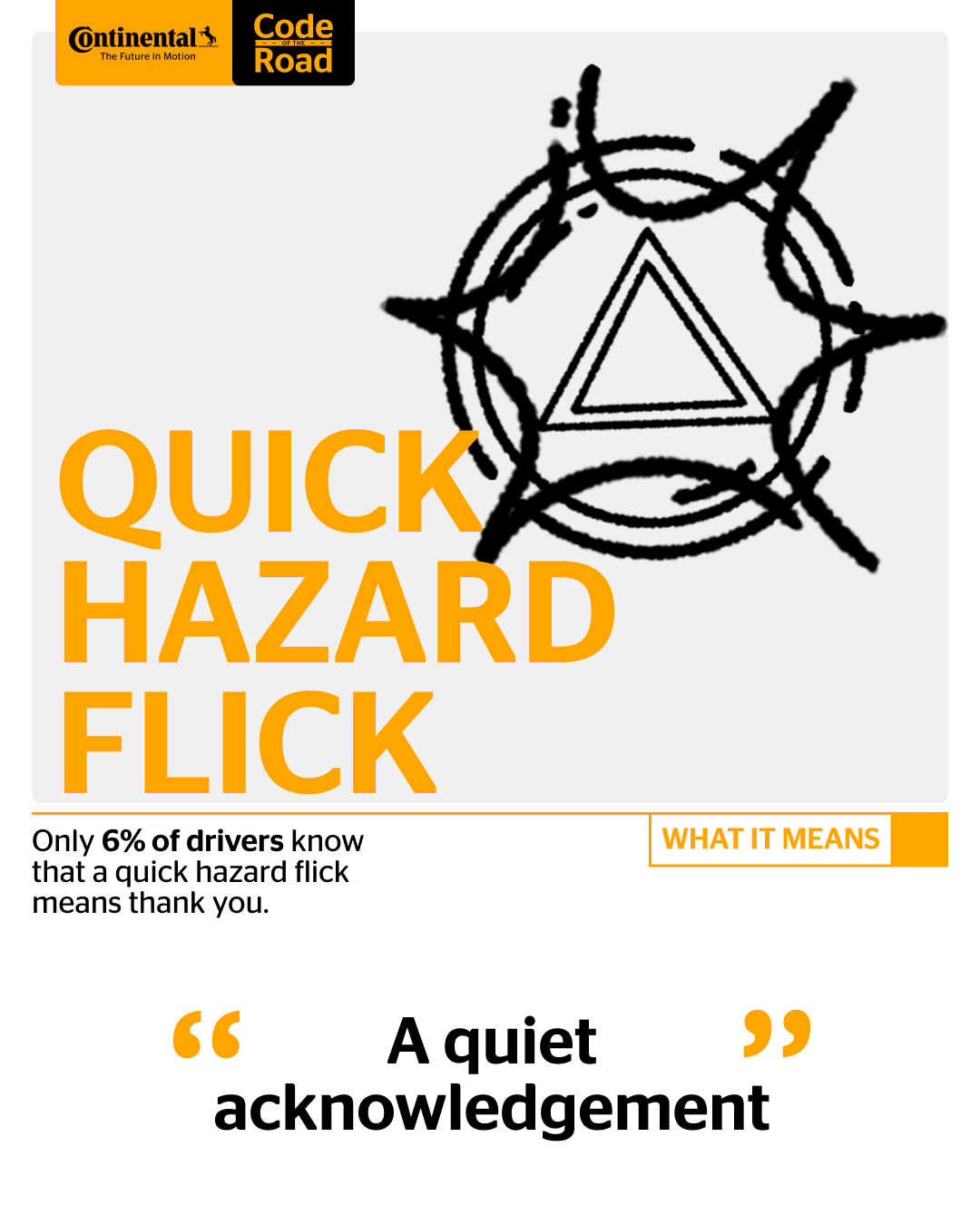
- 01
- 02
- 03
- 04
- 05
- 06
- 07
- 08
- 09
Related Articles
-
 2025/07/29MaxContact MC7Read more
2025/07/29MaxContact MC7Read more -
 2025/07/29SportContact 7Read more
2025/07/29SportContact 7Read more -
 2025/07/29UltraContact UC7Read more
2025/07/29UltraContact UC7Read more